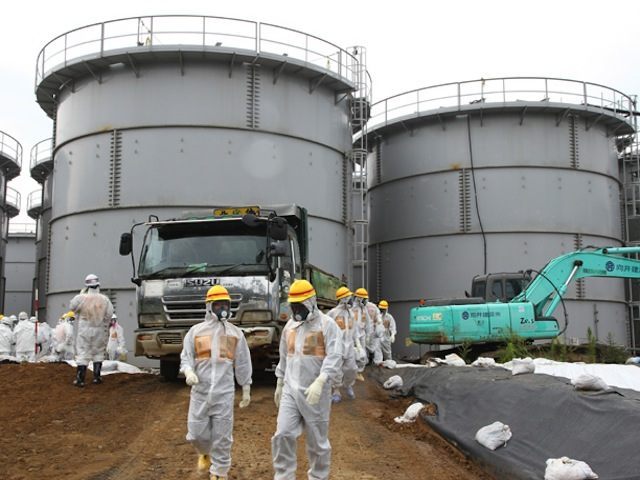Greenpeace campaigners have jumped on the cancer diagnosis of a worker at the Fukushima nuclear power plant as proof that nuclear power isn’t safe, issuing statements describing his diagnosis as a “massive blow” to the industry. But cancer specialists have expressed surprise that the man’s illness has been linked to Fukushima at all.
On Tuesday, the 41 year old man, who has not been named, became the first worker at the Fukushima plant to have his diagnosis of leukaemia recognised by officials at Japan’s heath ministry as caused by his work at the plant.
The man was a worker at the plant during the clean-up operation following the disaster of March 2011, when a combined earthquake and tsunami event caused a triple meltdown in the reactor. So far, 45,000 workers have been involved in the clean-up and decommissioning work, which is expected to take around 40 years to complete.
Greenpeace wasted no time in accusing the International Atomic Energy Agency (IAEA) and Japanese authorities of being premature in saying there would be no discernible impact on health from the disaster.
In a statement, Greenpeace Japan said: “This is a massive blow to the IAEA, which stated in September of this year that no discernible health effects due to the exposure to radiation released by the accident are to be expected.”
And Jan Vande Putte, a radiation expert with Greenpeace Belgium, said: “The statement from the IAEA that there would be no discernible health effects from the Fukushima disaster was clearly premature.
“The impacts both from the initial releases and from the ongoing nuclear crisis have yet to be fully seen, as the historical example of Chernobyl demonstrates. Greenpeace calls on the IAEA and the Japanese authorities to retract their unsubstantiated and unscientific statement.
“The workers on-site and the citizens of Fukushima are suffering from the consequences of this nuclear disaster. Denying this reality is both dismissive of their suffering and undermines their fight for justice for themselves and their families.”
According to CNN, ten other workers have filed similar cases against the plant’s operator, the Tokyo Electric Power Company (Tepco). Seven have had their cases dismissed, while three are still pending.
But cancer experts have pointed out that eleven incidents of cancer in a group of 45,000 people over four years is well within the expected range. The age standardised rate of cancer incidence in Japan is 217.11 new cases each year per 100,000 people, according to the World Health Organisation’s cancer agency.
Other have pointed out that the worker received a very low dose of radiation, well within a range unlikely to have an effect. Before being diagnosed the man had been exposed to 16 millisieverts (mSv) of radiation at Fukushima, and another 4 mSv during three months spent working at another nuclear plant in 2012. Compensation insurance is awarded to workers after exposure to 5 mSv in a year, according to the ministry, the Guardian has reported.
In the light of these figures, Gerry Thomas, professor of molecular pathology at Imperial College London, expressed surprised at the health ministry’s decision to recognise the diagnosis as linked to radiation exposure while working at Fukushima.
“Given the low doses that the workers were exposed to, the increased risk is very small at these doses, and it would be very difficult to be certain that this was due to radiation and not to other factors that cause leukaemia,” she said. “At these doses, the other factors are a more likely cause of the man’s illness.”
Tepco has declined to comment on the decision by the ministry of health to award compensation. “We would like to offer our condolences to the worker,” a Tepco spokesman said, adding: “We will continue to reduce the radiation dose of the working environment and manage thoroughly workers’ exposure to radiation.”

COMMENTS
Please let us know if you're having issues with commenting.